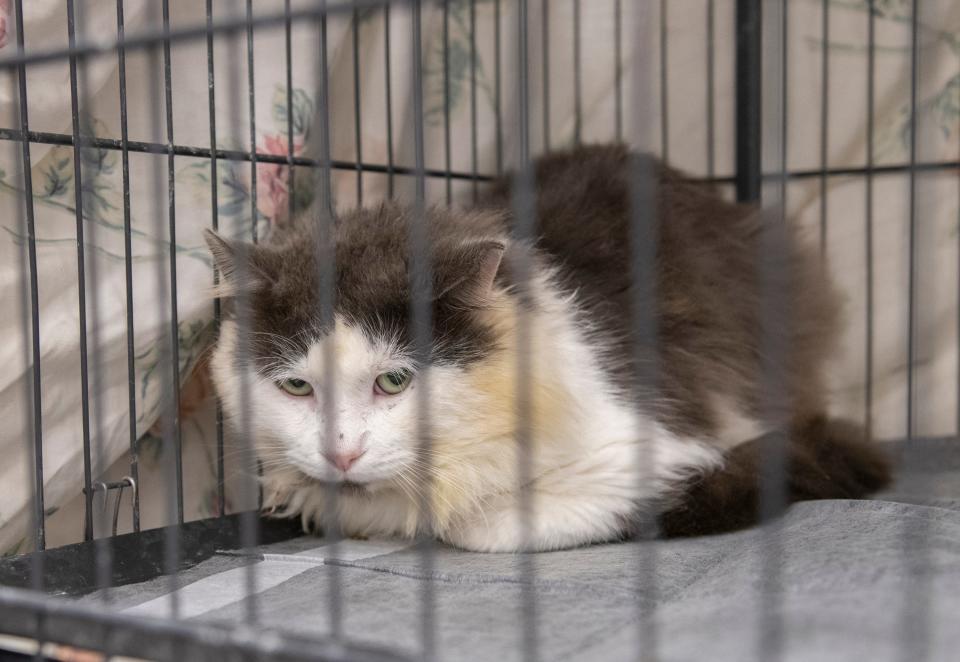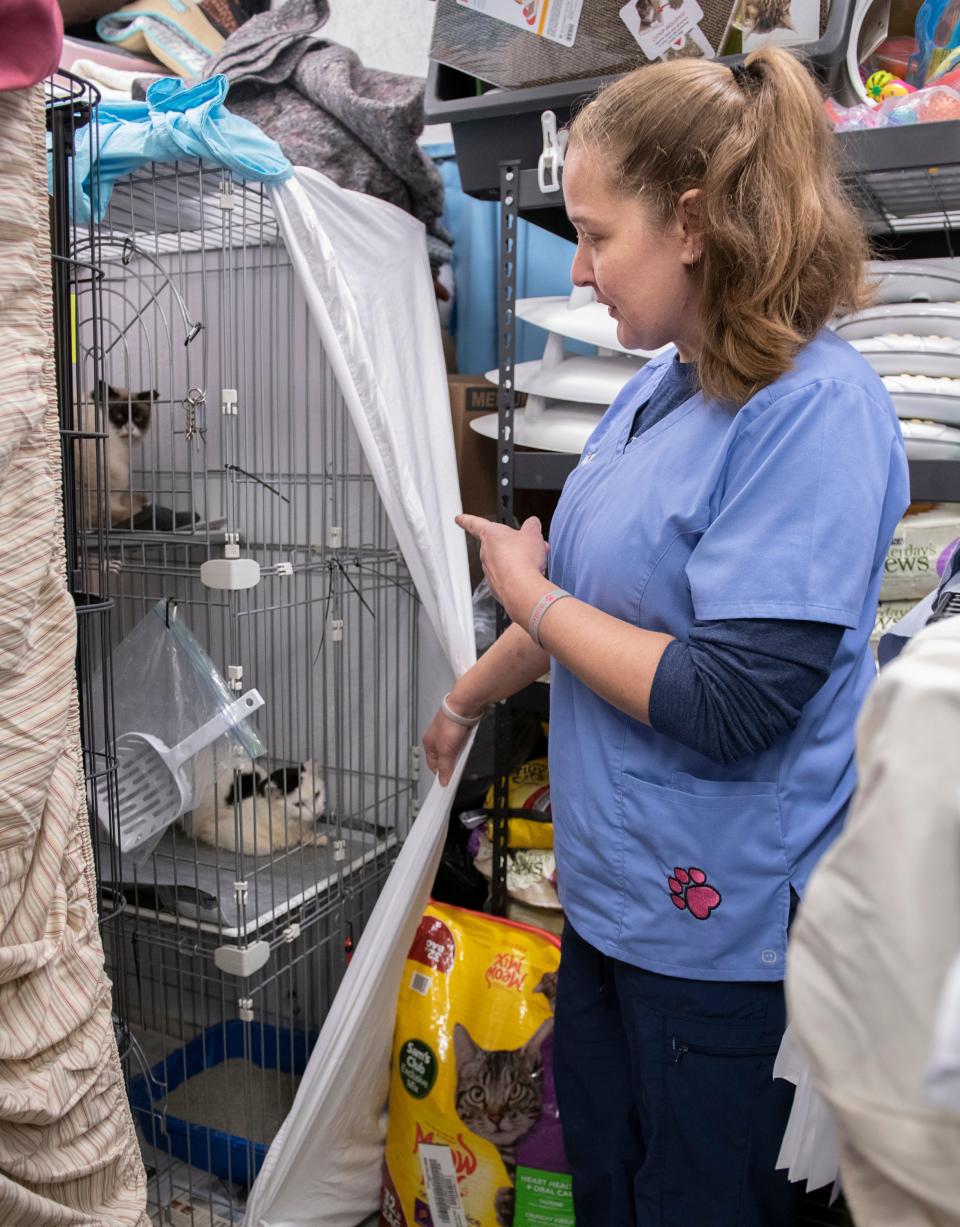A HOPE traps second-largest cat colony in 2 years, highlighting need for Milton facility
Last week, Santa Rosa County's A HOPE conducted its second-largest mass trapping of stray cats in two years after a colony of 84 cats was discovered in Pace.
To spay and neuter the animals, however, the organization had to drive them more than 100 miles to the nearest nonprofit clinic, which was Operation Spay Bay in Panama City.
The logistics of that undertaking highlight part of why A HOPE is planning to open a new facility in Milton. Among other things, the new center would help A HOPE better handle colonies in Santa Rosa County.
Help for vets: Veteran grows equine therapy farm in Milton for those with PTSD, trauma
Stella and Cieza: Gulf Breeze Zoo has a new sibling pair of maned wolves

A HOPE Vice President Paige Cary said the organization hopes to have its own spay and neuter facility in Milton up and running at the end of 2022 or start of 2023.
"In working with the (county) through all these years, it's always been our goal to open an affordable spay-neuter clinic," she said.
Cary said the clinic will have a veterinarian trained in shelter medicine and plans to offer lower cost services to the community.
"It would be open to anybody for situations like this, for rescues that need to get their fosters fixed, but mainly for the general public," Cary said. "Because here's the thing, people want to do the right thing, but they just can't afford it."
Partnering with Santa Rosa County: County funds low-cost spay and neuter, takes step to overhaul animal ordinance
The shelter is expected to sit on Pine Blossom Road in Milton. Cary stressed the facility will be used only to spay or neuter, vaccinate and microchip animals, not house them.
"We're not doing adoptions. We're not housing animals. We're not doing any of that," Cary said.

The large colony that A HOPE worked with last week was a trap, neuter, release, or TNR, which is the process the county uses to handle certain strays rather than euthanizing them.
The animals have been spayed or neutered, vaccinated against rabies, dewormed and treated for fleas. The stray cats that could be adopted were made available for adoptions. Those that were feral or unadoptable were returned at night to where they were found.
"The cats need to stay where they are. That's technically their home," Cary said.
TNR has proven to be effective in certain situations at keeping down a community's stray cat population, said Tom Lloyd, chief of emergency management operations at Santa Rosa County. Once spayed and neutered, the colonies also can help keep rodents in check, he said.
Commissioner Sam Parker, who represents the Pace area, said constituents have brought up issues of large populations of feral and stray cats in the past, but he's not aware of a recent uptick in the feral or stray cat population.
"I have heard some complaints about the cat situation, about feral cats still being pretty heavily populated in some areas," Parker said.
Cary said if residents are bothered by having stray cats roam their property, there are safe ways to teach them to stay away, such as sprinkler systems and sound devices.
Even with help from the county and A HOPE, Lloyd said he wants the community to know it is up to them to properly maintain their pets.
"We want to encourage our community to have responsible pet owners, and that includes spay and neuter, and make sure they're properly vaccinated," he said. "And taking care of health checks, that type of thing."
This article originally appeared on Pensacola News Journal: A HOPE traps 84-cat colony in Pace, highlighting need for new facility
